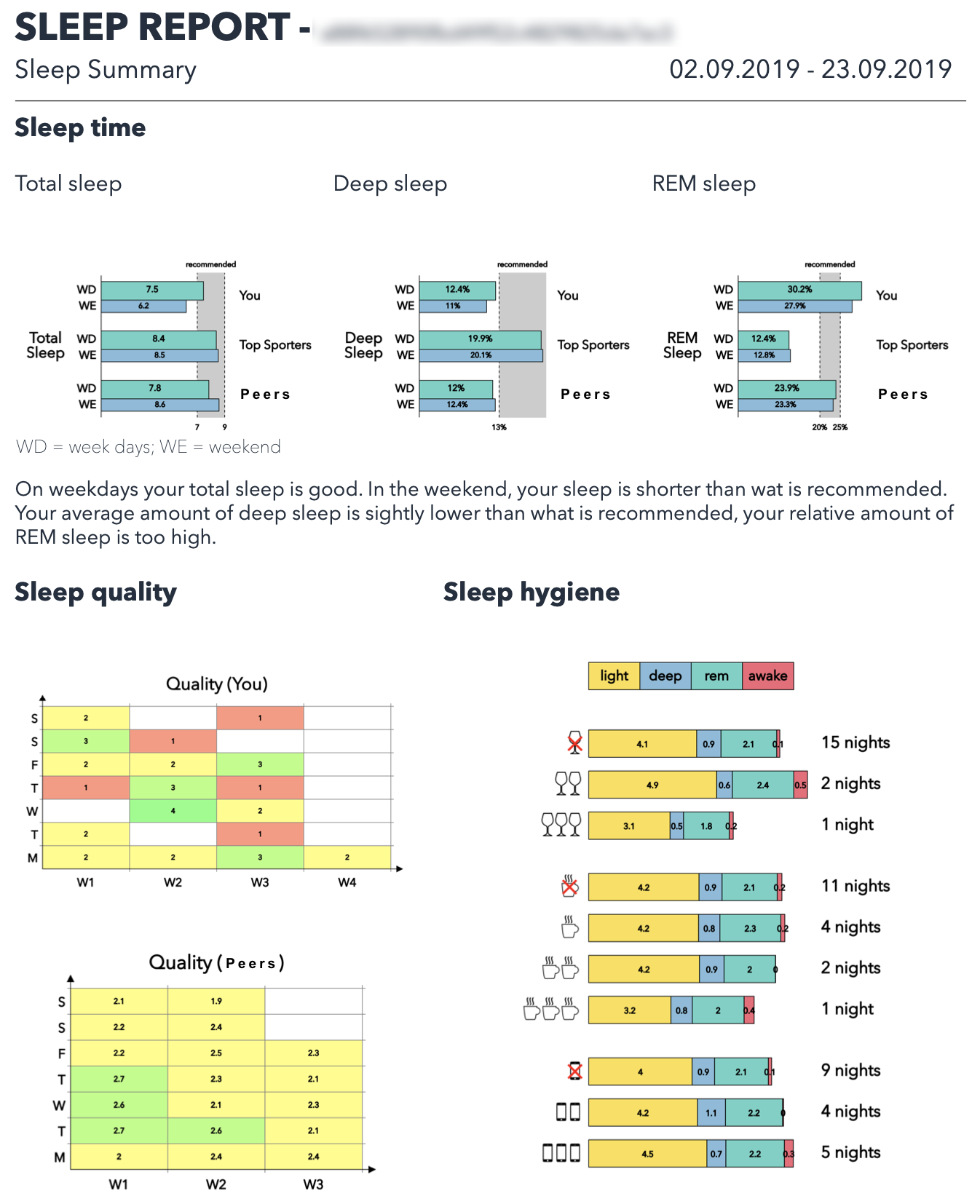Project setup
We provided 20 participants from the same organisation with Garmin Vivosmart 4 devices and instructed them to wear the devices day and night as much as possible over the course of one month. Information on sleep duration, sleep stages, oxygen saturation and physiological stress is collected by these devices. In order to provide context on these observations, surveys are sent out periodically. This survey gauges habits such as the consumption of alcohol/caffeine and watching screens in the evening.
Approach
Participants sign up for a Garmin Connect account after which we send them an invitation to participate in the project. With this invitation, a participant can sign up for the program online. This process is completely GDPR compliant and participants can easily retract consent using the Garmin Connect application.
After registration participants can look at their own unprocessed data that is gathered by their smartwatch using the Garmin Connect application. On top of that, every two weeks we supply the participant with a report that summarises and interprets their data in an easy to understand way. Doing so, participants can see how their behaviour might influence their sleep and how their sleep quality fluctuates over time. In addition, these reports also compare a person’s data with average data of his/her peers in order to have a reference point.

Results
By using the aggregated and anonymised data of all participants together, we were able to make some interesting empirical observations. For example, the devices registered significantly higher physiological stress levels during the first 4 hours of sleep when a participant drank alcohol after 5 pm. Also, participants who did not watch any screen 30 minutes prior to going to bed had increased deep sleep as compared to participants who did.
Conclusion
While the devices used are not medical grade and the group of participants is too small to draw conclusions, we did make some interesting observations which align with scientific consensus. We also get a lot of feedback from participants saying this study made them aware of their sleeping patterns and behaviour. This gives them the tools to act and change their behaviour for the better.